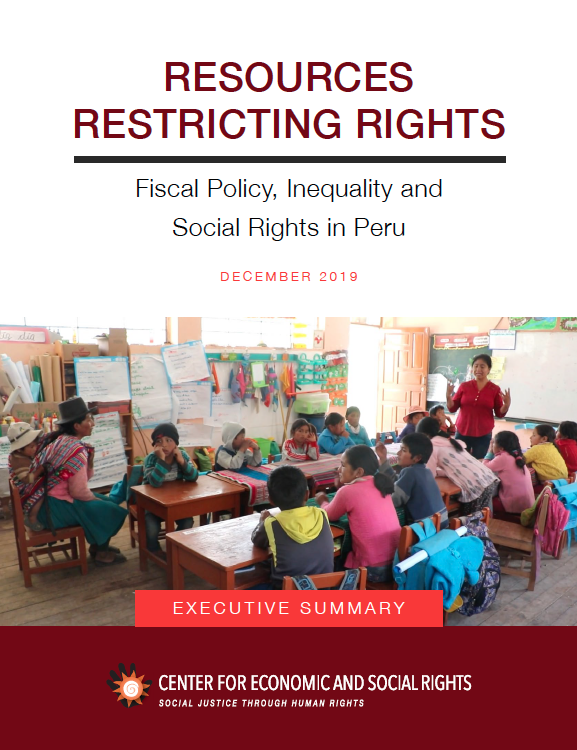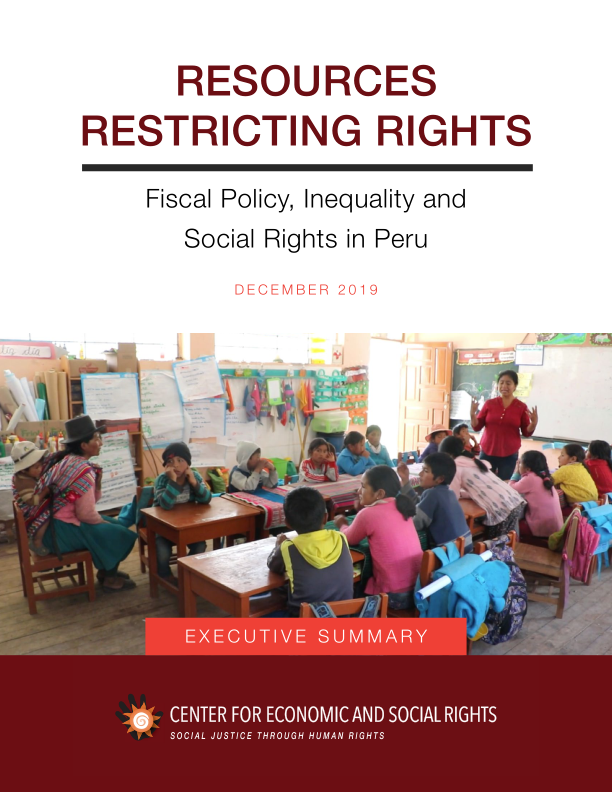Peru has presented itself to the world in the 21st century as a prosperous and resilient economy, with significant achievements in terms of reducing poverty and inequality, despite recurring episodes of political instability. However, this appearance obscures other important phenomena that reveal its limitations.
The purpose of this study undertaken by the Center for Economic and Social Rights, in close collaboration with social organizations and researchers in Peru, is to contribute to a broader reflection on the role tax policy should play in reducing socioeconomic inequality and guaranteeing human rights in the country. Its main argument is that the current fiscal policy in Peru is placing an unjustified constraint on the enjoyment of social rights, which also contradicts the constitutional and human rights obligations of Peru. The study focuses on two rights, health and education, and specifically on two main issues: the State’s response to cancer, and policies to guarantee the right to bilingual, intercultural education. On both topics, although there are initiatives with good intentions, funding gaps for such policies create significant obstacles to continued progress in the guarantee of these rights.
Accompanying video in Spanish available here.

